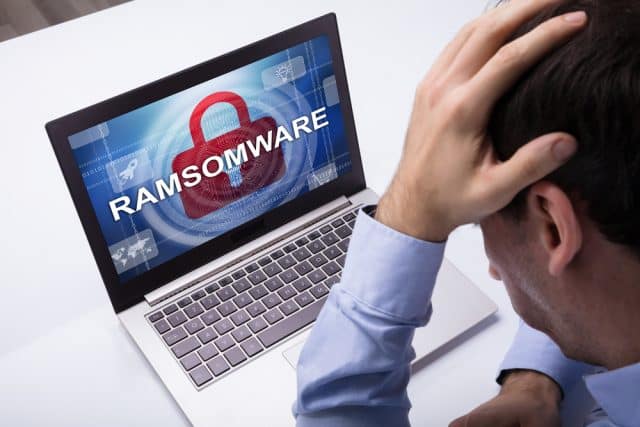How cloud-based file systems can protect your business from ransomware

Ransomware has rapidly become the number-one cyber threat, with attacks becoming more numerous and aggressive -- a trend that’s not likely to change anytime soon. According to a report from SonicWall, during the first half of this year, ransomware attacks in Europe climbed an astonishing 234 percent compared to 2020, while U.S. incidents soared by 185 percent. Worldwide attacks weren’t far behind, up 151 percent from the same period the year before. The attackers are equal-opportunity criminals, striking organizations of all types and sizes nearly every week.
There are several reasons for the steep and steady increase. The surge in remote workers using poorly protected home systems and networks has created many more opportunities for hackers. At the same time, the growing use of cryptocurrencies has made it easier to extort payment. Emboldened by these trends, cybercriminals are becoming more aggressive, threatening to publish sensitive data if targets refuse to fork over the ransom. They’re also demanding more money; research from Unit 42 puts the average ransom payment in 2021 at almost double the prior year.
Organizations clearly need to bolster their defenses to reduce their vulnerability and devise strategies to deal with potential attacks. Cloud-based file storage platforms are critical to both efforts. They allow more flexible sharing of information as well as forensic assessment and surgical recovery from attacks, so victims won’t suffer crippling downtime or be forced to pay the ransom.
Here are five reasons to use a cloud file storage system to help your IT team recover from what is no longer a matter of if, but when: ransomware attacks.
Cloud storage allows better sharing of data and faster recovery
Companies that rely on on-premises file sharing infrastructures for disaster recovery (DR) often struggle to recover from digital attacks. Duplicate infrastructures are complex arrangements that require regular maintenance. They’re also hard and resource-intensive to manage, posing problems when an IT team needs to quickly assess the damage from an attack and implement DR plans.
The combination of centralized storage with localized file access ensures rapid local detection of damage and much simpler file restoration in the event of an attack. These advantages put businesses in a better position to cope with the threat of disasters like ransomware.
Data is immutable
Another major plus to cloud storage is that the data can be stored in an immutable fashion. Global file systems offer complete data integrity, and they don’t require that data be moved from one location to another to be accessed anywhere in the world. In the early days, skeptics doubted the reliability of these types of storage systems, but the ubiquity and stability of these platforms have since eliminated those concerns.
Continuous file versioning supports targeted file recovery
Leading file storage systems offer continuous file versioning (snapshot) capabilities. This enables IT and networking teams to have access to unlimited recovery points for file data, as frequently as every few minutes, which allows controlled, local-level file-level recovery in the event of an attack.
With this level of control, there’s less risk that a business will be shut down by the attack, losing productive time -- a specter that spurs many companies to pay the ransom. The security and resiliency of the cloud enables the CIO to plan ahead and practice for various attack scenarios. The IT team can set faster and more predictable RPOs/RTOs and adjust recovery plans as new ransomware exploits emerge.
If an organization’s files are damaged or encrypted by an attack, IT teams can quickly analyze audit trails to assess damage and implement recovery of specific affected data, rather than entire volumes of stored data. Then they use point and click tools to simplify and speed up file restoration. IT teams can isolate affected files and restore them so quickly that daily operations are barely disrupted.
Recovery takes only minutes
The process of restoring files is often tedious, especially in hybrid infrastructures. In some cases, it can take weeks or even months for an operation to fully recover, even if the company responds to the attack immediately.
Next-generation file systems, by contrast, can roll back business-critical files to the moment before the incident occurred. This makes file restoration a minor inconvenience for a company’s workforce. Even organizations with distributed workforces and multiple locations can rest assured that their critical assets will remain safe in the event of an attack or outage and their employees can more quickly resume productive work.
Cloud simplifies DR
During the pandemic, IT teams were primarily focused on keeping the doors open and the company up and running. The need for business continuity (BC) planning took a back seat to day-to-day concerns, especially for organizations with complex hybrid-technology stacks.
Because today’s file systems can roll back files to the moment before an incident, BC planning is much faster and requires fewer resources than with on-premises storage infrastructures. It’s easier to plan ahead to deal with ransomware, allowing quicker, more effective recovery if an attack takes place.
In conclusion: the best defense against ransomware
Ransomware threats continue to evolve, but so do cloud storage systems. The major providers have made significant innovations that simplify BC planning, enabling IT teams to quickly pinpoint damage and rapidly restore compromised data. They can achieve RPOs in minutes, rather than in days and weeks, minimizing business disruption and downtime. At this time, cloud-based file storage represents one of the most effective weapons in the war against ransomware.
Image credit: AndreyPopov/depositphotos.com

Russ Kennedy is chief product officer at Nasuni, which provides a file services platform built for the cloud. Before Nasuni, Kennedy directed product strategy at Cleversafe through its $1.3 billion acquisition by IBM. Earlier in his career, Russ served in a variety of product management and development roles, most notably at StorageTek (acquired by Sun Microsystems), where he brought several industry-leading products to market. An avid cyclist and hiker, Kennedy resides in Boulder, Colorado with his family. He has a BS degree in Computer Science from Colorado State University and an MBA degree from the University of Colorado.